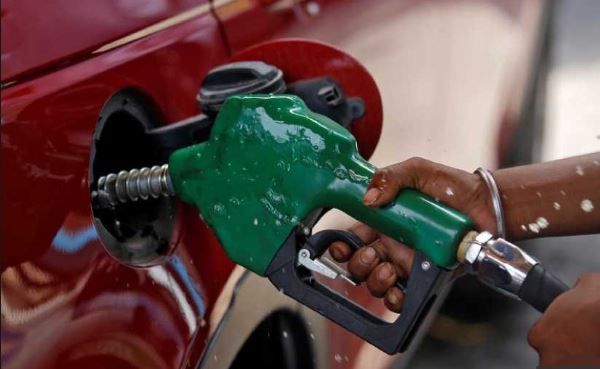According to The East African, The National Treasury of Kenya is facing pressure from the International Monetary Fund (IMF) to increase the Value Added Tax (VAT) on all petroleum products times two, in order to cut the budget deficit, while also reducing the public borrowing.
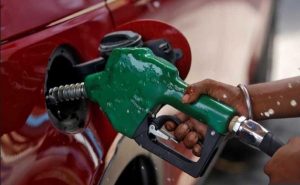
The International Monetary Fund (IMF) which is a multilateral financier believes that the East African nation of Kenya should put in place a 16 percent Value Added Tax (VAT) on all fuels when the prices of crude oil drop. This is two times higher than the 8 percent Value Added Tax (VAT) that is the case now.
This also shows that the fund is open for a delay in implementation in order to protect or safeguard against pressure and the increase in public anger with regards to the rising costs of Petroleum in Kenya.
Diesel is right now retailing at a price that is its highest since December of 2018 while Petrol is selling at a price that has not been experienced since November of 2011.
The pressure from the International Monetary Fund (IMF) with regards to an increase in the fuel tax was made public via an advisory to the Kenyan government after the board of the International Monetary Fund (IMF) approved a new loan for the East African nation of Kenya valued at 2.34 billion United States Dollars. The loan will be channeled towards helping Kenya’s moves in properly combating the ongoing Coronavirus pandemic while also addressing its vulnerabilities in the area of debt.
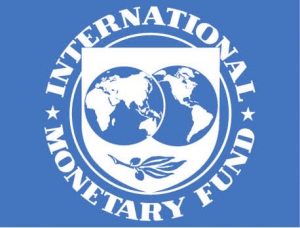
Although it has been pushed back a number of times in the past the introduction and implementation of the standard 16 percent Value Added Tax (VAT) on all fuels, is a part of the recents efforts by the Kenyan government to improve on revenues.
In 2018 President Uhuru Kenyatta, slashed the Value Added Tax (VAT) down to 8 percent as a result of the protests from business lobbies and motorists after the implementation of the full tax.
The tax was initially included in a law which was passed in 2013. It was however postponed a number of times as a direct result of numerous complaints regarding the impact it would have.
The International Monetary Fund (IMF) is now pushing for Kenya to consider the fuel tax at a time when the multilateral financier is expected to play a significant role in the creation of a policy that would require the Kenyan government to introduce tougher conditions across a number of sectors.
Speaking to the government the International Monetary Fund (IMF) stated that, “If needed to meet fiscal objectives, capitalise on lower fuel prices by aligning fuel VAT to the standard rate.”
It added that, “Oversupply and volatility in the oil market would be a positive shock for Kenya, easing potential external balance pressures from other sources.”
The advisories by the International Monetary Fund (IMF) are coming at a time when it is providing a multi billion Kenyan Shilling loan facility to Kenya where a portion of the funds will be going into the budget to boost up the public purse.
According to The East African Kenya had in the past stayed away from credit of that kind during the administration of the former President Mwai Kibaki. Its support from the International Monetary Fund (IMF) and or the World Bank usually arrived in the form of supports for projects.
Kenya has in recent times been faced with a drop in its cash flow, coupled with a drop in its revenues, an increase in debt service obligations, as well as the effects of the still ongoing Coronavirus pandemic.
The harsh increase in the prices of fuel since the beginning of the year has led to shifting of the public’s focus to the taxation of Petroleum products with Kenyans who live in the border towns reportedly looking for fuel alternatives that are cheaper in neighboring countries like Uganda and Tanzania.
There are currently 2 taxes and 7 levies that the Energy and Petroleum Regulatory Authority (EPRA) takes into account when decides on fuel prices. These 2 taxes and 7 levies have been blamed for the high cost of Diesel, Super Petrol and Kerosene.
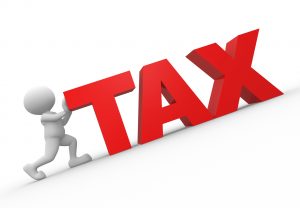
The levies and taxes come up to 57.33 Kenyan Shillings (which is 0.53 United States Dollars) for every litre of Super Petrol, 39.55 Kenyan Shillings (which is 0.36 United States Dollars) for every litre of Kerosene and 45.47 Kenyan Shillings (which is 0.42 United States Dollars) for every litre of Diesel.
In the latest prices Excise Duty takes up the largest portion of the levies and taxes at 21.95 Kenyan Shillings per litre, followed closely by the Road Maintenance Levy which is 18 Kenyan Shillings per litre, Value Added Tax (VAT) at 9.10 Kenyan Shillings per litre and the Petroleum Development Levy which comes in at 5.40 Kenyan Shillings per litre.
Others include the Anti Adulteration Levy, the Railway Development Levy, the Import Declaration Fee, as well as the Merchant Shipping Levy.
The Energy and Petroleum Regulatory Authority (EPRA) in addition puts into consideration the landed cost of petroleum imports, distribution costs, storage costs, and the margins for oil marketing companies when it makes decisions with regards to setting the fuel prices.
The nation’s capital; Nairobi the price for Super Petrol is at a retail level of 122.81 Kenyan Shillings per litre (which is 1.13 United States Dollars) with Diesel standing at 107.66 Kenyan Shillings which is around 1 United States Dollar. This prices are according to the Energy and Petroleum Regulatory Authority (EPRA).
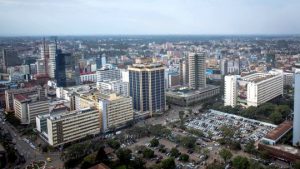
International Institute for Environment and Development (IIED). www.iied.org
The prices of Petrol and Diesel in Kenya, are currently the highest in East Africa and significantly higher than the prices present in Rwanda and Uganda which are both landlocked and rely of Kenya’s Mombasa Port in order to carry out the importation of Petroleum products.
Checking on globalpetrolprices.com which is a website that provides tracked and up to date information on fuel prices as well as electricity prices across more than 150 countries, revealed that a litre of Petrol in Kampala Uganda is retailing for 3,960 Ugandan Shillings (1.08 United States Dollars), while a litre of Diesel retails for 3,700 Ugandan Shillings (1.01 United States Dollars).
For Kigali which is the capital city of Rwanda a litre of Petrol retails for 1,088 Rwandan Francs (1.09 United States Dollars).
Tanzanian’s capital of Dar es Salaam has Super Petrol retailing at 1,981 Tanzanian Shillings (0.85 United States Dollars) per litre. This makes it the most affordable pricing in the East African region.
Kenya’s record high increase in its Diesel and Petrol prices has also had a negative effect on numerous households in the nation. This is because an increase in the cost of transportation and energy, also significantly affects goods and services which are in turn used to measure inflation in the country.
Producers or rather manufacturers of services which include manufactured goods and electricity, will have to put into consideration the increased costs of Petroleum, which will lead to a pricing pressure across the Kenyan economy. This will in turn have negative effects on the cost of living.
The large number of individuals in Kenya currently rely on Gas and Kerosene for the cooking as well as lighting. This means that the price of crude oil will be a major determinant with regards to the rate of inflation.
The Kenyan economy also makes use of Diesel for power generation, the running of agricultural machinery like Tractors, and of course transportation. This will in turn have a direct effect on the cost of numerous farm products.
How informative was this article? Are there any other news topics, categories, or How To topics, that you would like us to write on? Feel free to reach out to Mpesa Pay in the comment section.

